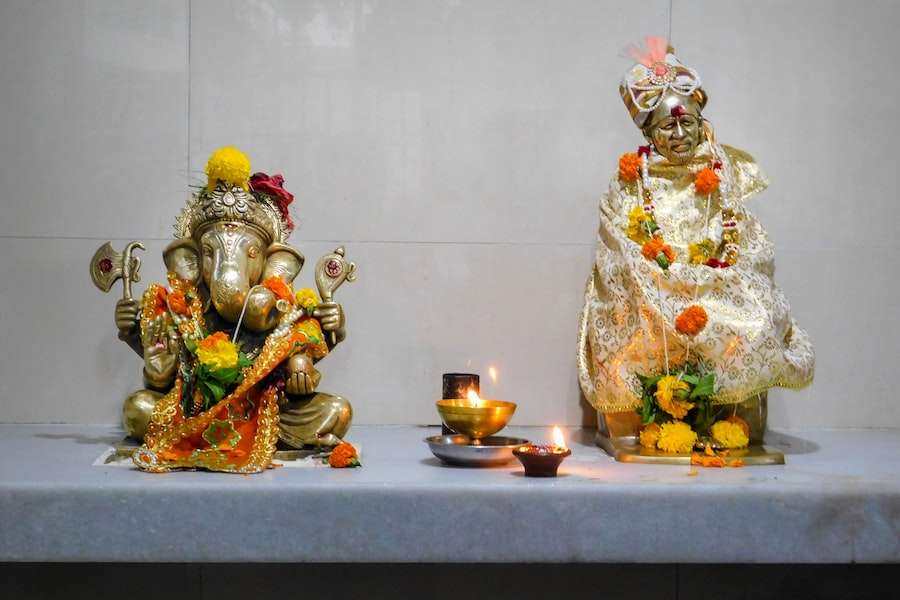The Majestic Elephant: Unpacking its Symbolism and Significance in Culture and Spirituality

Elephants have long been revered and celebrated in various cultures and traditions around the world. These majestic creatures have captured the imagination of people for centuries, symbolizing power, strength, wisdom, and spirituality. From their depiction in ancient art and mythology to their role in religious beliefs and practices, elephants hold a special place in the hearts and minds of many.
Key Takeaways
- The elephant is a symbol of power and strength across cultures.
- Elephants play a significant role in spiritual beliefs and practices.
- In Hinduism, Ganesha is the most well-known elephant deity, but there are others.
- Elephant folklore and legends are found in cultures around the world.
- Elephants are important in African culture and traditions, as well as in Asian art and architecture.
The Elephant as a Symbol of Power and Strength
Throughout history, elephants have been seen as symbols of power and strength. In many ancient civilizations, such as Egypt and Rome, elephants were used in warfare due to their size and strength. They were also seen as a sign of wealth and prosperity, as only the wealthiest rulers could afford to own and maintain these magnificent creatures.
In addition to their physical strength, elephants are also known for their intelligence and emotional depth. Their ability to form deep bonds with their herd members and their strong maternal instincts further enhance their image as powerful and noble creatures.
The Elephant’s Role in Spiritual Beliefs and Practices
Elephants have a significant role in spiritual beliefs and practices in many cultures. In Hinduism, for example, elephants are considered sacred animals and are associated with various deities. The elephant-headed god Ganesha is one of the most widely worshipped deities in Hinduism and is believed to bring good fortune and remove obstacles.
In Buddhism, elephants are seen as symbols of mental strength, wisdom, and compassion. The story of the Buddha’s birth involves his mother dreaming of a white elephant before his conception, symbolizing his future greatness.
The Elephant in Hinduism: Ganesha and Beyond
| Topic | Description |
|---|---|
| Ganesha | A Hindu deity with the head of an elephant and the body of a human. He is widely revered as the remover of obstacles, the patron of arts and sciences, and the deva of intellect and wisdom. |
| Elephant symbolism | In Hinduism, elephants are considered sacred animals and are associated with wisdom, strength, and royalty. They are often depicted in art and mythology as vehicles of gods and goddesses. |
| Worship | Ganesha is worshipped by millions of Hindus worldwide, particularly during the festival of Ganesh Chaturthi. Offerings of sweets, fruits, and flowers are made to him, and his idols are immersed in water at the end of the festival. |
| Other elephant deities | Besides Ganesha, there are several other elephant-headed deities in Hinduism, such as Airavata, the mount of Indra, and Matanga, a sage and musician. |
| Beyond Ganesha | While Ganesha is perhaps the most well-known elephant deity in Hinduism, elephants and their symbolism are present in many other aspects of Hindu culture, such as art, literature, and architecture. |
In Hinduism, elephants hold a special place as they are associated with Ganesha, the elephant-headed god. Ganesha is one of the most beloved deities in Hindu mythology and is worshipped as the remover of obstacles and the god of wisdom.
Ganesha is often depicted with the head of an elephant and the body of a human, symbolizing the union of the divine and the earthly. He is also known for his large ears, which symbolize his ability to listen to the prayers and concerns of his devotees.
Elephant Folklore and Legends from Around the World
Elephants have been the subject of numerous folklore and legends in different cultures around the world. In African folklore, elephants are often portrayed as wise and powerful beings, with stories of their intelligence and ability to communicate with humans.
In Asian cultures, elephants are often associated with luck, prosperity, and fertility. In Thai folklore, for example, it is believed that touching an elephant’s trunk will bring good luck and fortune.
The Elephant in African Culture and Traditions

In many African cultures, elephants hold a special place as symbols of power, wisdom, and spirituality. They are often seen as guardians of the land and are believed to possess supernatural abilities.
In some African tribes, elephants are considered sacred animals and are worshipped as deities. They are believed to have the power to bring rain, protect against evil spirits, and bring fertility to the land.
The Elephant’s Importance in Asian Art and Architecture
Elephants have been depicted in Asian art and architecture for centuries, symbolizing power, strength, and wisdom. In ancient India, for example, elephants were often depicted in sculptures and carvings on temples and palaces.
In Thai culture, elephants are considered national symbols and are featured prominently in traditional art forms such as painting, sculpture, and textiles. They are also used in religious ceremonies and festivals.
Elephant Conservation: Protecting these Majestic Creatures
Despite their cultural significance, elephants face numerous threats to their survival. Habitat loss, poaching for ivory, and human-elephant conflict are some of the major challenges that elephants face today.
Conservation efforts are crucial to protect these majestic creatures and ensure their survival for future generations. Organizations and governments around the world are working to protect elephant habitats, combat poaching, and promote responsible tourism.
The Elephant as a Metaphor for Memory and Wisdom
Elephants are often seen as symbols of memory and wisdom. Their long lifespan and exceptional memory have fascinated scientists and researchers for years. Elephants are known to have strong social bonds and can remember individuals and locations for many years.
In literature and popular culture, elephants are often portrayed as wise and knowledgeable characters. They are seen as symbols of wisdom, guidance, and the ability to overcome obstacles.
Elephant Communication: Understanding their Language
Elephants have a complex communication system that involves a combination of vocalizations, body language, and infrasound. They use low-frequency rumbles to communicate with each other over long distances, often beyond the range of human hearing.
Elephants also use their trunks to communicate through touch, smell, and gestures. They can convey a wide range of emotions and intentions through their body language, such as aggression, playfulness, or fear.
The Elephant as a Tourist Attraction: Ethical Considerations and Responsible Tourism
The growing popularity of elephant tourism has raised ethical concerns about the treatment and welfare of these animals. Many tourist attractions offer activities such as elephant rides or performances, which can be harmful to the well-being of elephants.
Responsible tourism practices aim to promote ethical interactions with elephants, such as observing them in their natural habitats or supporting conservation efforts. It is important for tourists to choose responsible operators that prioritize the welfare of elephants and contribute to their conservation.
Elephants hold a special place in various cultures and traditions around the world. They are revered for their power, strength, wisdom, and spirituality. From their depiction in ancient art and mythology to their role in religious beliefs and practices, elephants have captivated the human imagination for centuries.
However, elephants face numerous threats to their survival, including habitat loss, poaching, and human-elephant conflict. It is crucial to support elephant conservation efforts and promote responsible tourism to ensure the protection and well-being of these majestic creatures. By doing so, we can help preserve the cultural significance and natural beauty of elephants for future generations.
If you’re interested in exploring the symbolism of elephants, you might also find the article on the symbolism of snakes intriguing. Snakes have long been associated with various meanings and interpretations across different cultures and belief systems. To delve deeper into this fascinating topic, check out the article on Snake Symbolism. Discover the hidden messages and symbolic representations behind these enigmatic creatures.
FAQs
What is elephant symbolism?
Elephant symbolism refers to the cultural and spiritual significance of elephants in various societies and religions around the world.
What do elephants symbolize?
Elephants are often associated with strength, wisdom, loyalty, and longevity. They are also seen as symbols of good luck, prosperity, and fertility in some cultures.
What is the significance of elephants in Hinduism?
In Hinduism, elephants are associated with the god Ganesha, who is often depicted with an elephant head. Ganesha is the god of wisdom, knowledge, and new beginnings, and is believed to remove obstacles from one’s path.
What is the significance of elephants in Buddhism?
In Buddhism, elephants are seen as symbols of mental strength, power, and wisdom. The Buddha is said to have been born from the side of an elephant, and white elephants are considered sacred in some Buddhist cultures.
What is the significance of elephants in African cultures?
In many African cultures, elephants are seen as symbols of power, strength, and wisdom. They are also associated with family and community, as elephants are known for their close-knit social groups.
What is the significance of elephants in Western cultures?
In Western cultures, elephants are often associated with the circus and entertainment industry. However, they are also seen as symbols of strength, loyalty, and wisdom, and are sometimes used as mascots for sports teams or organizations.





